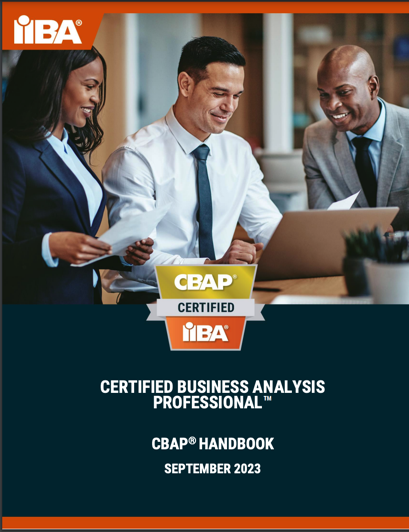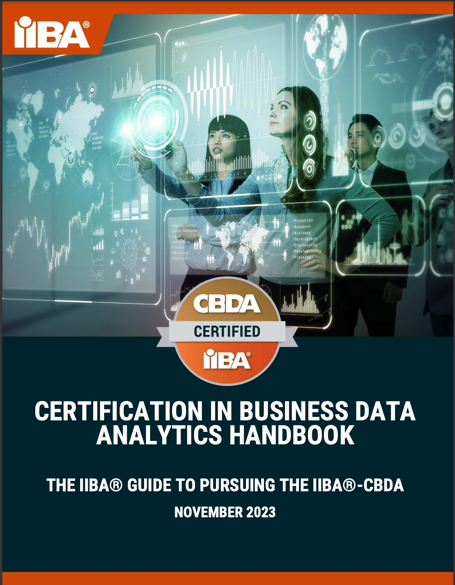Certification of Capability in Business Analysis(CCBA) Course
Join This CCBA Course To Delve Into Thefundamentals Of Business Analysis. Understand Abusiness Analyst's Pivotal Role And Significance Anduncover Their Daily Tasks.
- Experienced instructors with industry expertise
- Access to official guides and materials
- Covers all exam topics thoroughly
- Flexible study at your own pace
- Support for exam service
- Anytime access to study resources
What you'll learn
Training Course Outline
Certification of Capability in Business Analysis(CCBA)
1.Introduction
2.lmportance of a Business Analyst
3.A Day as a Business Analayst
4.Who is a Business Analyst?
5.What is Business Analysis?
6.Business analysis with Excel
7.Difference Between Data Analyst andBusiness Analyst
Training Options
Self Paced Learning
- Lifelong access to high-quality content
- Curated by industry experts
- Customized learning progress
- 24/7 learner assistance and support
- Follow the latest technology trends
Exam Dump
- 100% Real Exam Practice Tests
- 100% Verified Exam Questions & Answers
- 100% Guarantee Passing Rate
- Average 7 Days to Practice & Pass
Description
Join our CCBA course to explore business analysis basics. Learn the role and tasks of a business analyst, and develop practical Excel skills for analysis. Ideal for beginners and those seeking clarity.
Pre-requisites
The course has no specific prerequisites.

IIBA CBAP ® HANDBOOK
This handbook describes the process for attaining the IIBA®-CBAP certification.

IIBA CBDA Certification Handbook
This handbook describes the process for attaining the IIBA®-CBDA certification.
Certification of Capability in Business Analysis FAQs
What is capability in business analysis?
In the realm of business analysis, capability refers to the evaluation of what a business is currently doing and what it has the potential to achieve, encompassing both strategic and operational perspectives. This process involves assessing an organization’s existing strengths and its capacity for future growth or adaptation. Unlike the broader discipline of business analysis—which typically centers on analyzing and refining specific business processes or supporting IT-driven initiatives like process re-engineering or technology enablement—capability analysis takes a higher-level view. It provides critical insights that guide long-term planning and operational improvements by identifying what the business can leverage or enhance.
What does CCBA certification stand for?
The CCBA certification, formally known as the Certification of Capability in Business Analysis, is a credential awarded to professionals with 2 to 3 years of business analysis experience. Offered by the International Institute of Business Analysis (IIBA), it recognizes an individual’s expertise, practical knowledge, and proficiency in the field. The CCBA validates a professional’s ability to tackle real-world business challenges, making it a respected milestone for those building a career in business analysis.
Is a business analytics certificate worth it?
Yes, obtaining a certification in business analytics is a worthwhile endeavor. The demand for skilled professionals in this field is surging, driven by organizations’ increasing reliance on data-driven decisions, and the salaries are notably competitive. Certifications provide a tangible way to sharpen your skills and boost your marketability. Platforms like Skill Success offer a variety of accessible courses that equip you with the technical know-how and credentials needed to thrive in this high-growth area, making it a smart investment for career advancement.
Which certification is best for a business analyst?
For business analysts with a few years of experience, the Certification of Capability in Business Analysis (CCBA) stands out as a top choice. This certification equips you with industry-standard best practices and hones your formal business analysis skills, offering a structured path to professional growth. By earning the CCBA, you not only enhance your career prospects but also distinguish yourself in a crowded field, gaining recognition for your ability to deliver impactful solutions and contribute to organizational success.
Is business analyst a good career?
A career as a business analyst is both fulfilling and promising, brimming with opportunities to apply your analytical prowess and business insight. The role often commands a higher salary than many other business positions, complemented by appealing benefits and a strong emphasis on work-life balance. Business analysts enjoy the chance to tackle diverse challenges, collaborate across teams, and drive meaningful change, making it an ideal path for those who thrive in dynamic, problem-solving environments.